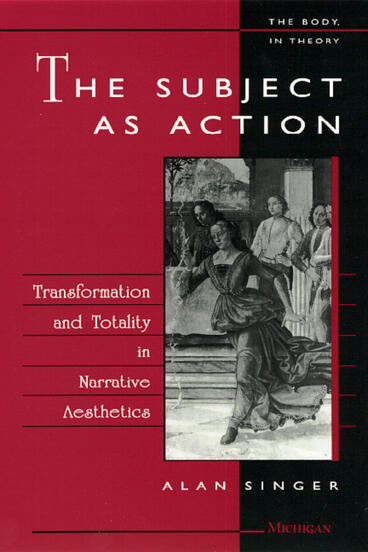The Subject as Action
Transformation and Totality in Narrative Aesthetics
Demonstrates the relation of narrative art to literary and philosophical speculations about human subjectivity
Description
In this original and groundbreaking study, Alan Singer posits "narrative aesthetics" as a link between philosophical skepticism about the status of human subjectivity and literary theoretical skepticism about the autonomy of the text. By observing the complementarity between narrative and the aesthetic, Singer argues for the relevance of narrative logic to the critique of post-Cartesian subjectivity.Each chapter juxtaposes a set of philosophical arguments about the dynamics of human agency with a close reading of stylistic innovations in narrative literature. The author focuses on formal innovations that give a strong theoretical warrant for linking narrative to the realm of human action. The book demonstrates aesthetic theory in the works of Aristotle, Baumgarten, Kant, Fichte, Hegel, Sartre, Adorno, and Goodman to be convergent with the goals of social theory espoused in the works of Schutz, Lukács, Althusser, Foucault, and Giddens. This philosophical tradition is traced in texts by Thomas Nashe, Laurence Stern, Henry James, Maurice Blanchot, William Gaddis, and John Ashbery.The Subject as Action concludes by asserting the usefulness of narrative aesthetics in resolving the current conflict between postmodern aestheticists like Jean-François Lyotard and anti-aesthetic communitarian ethicists like Jürgen Habermas, for whom the realms of the aesthetic and the political otherwise remain mutually exclusive possibilities.
Alan Singer is Professor of English, Temple University.
Reviews
"Singer's work at one stroke stops and reverses narratology's drift of decades away from truly searching inquiry into the place of actions and events in narrative. . . . a rare academic book because it does not cheapen either the demands or the dignity of intellectual labor, and because it fully rewards both."
--Robert Caserio, University of Utah

